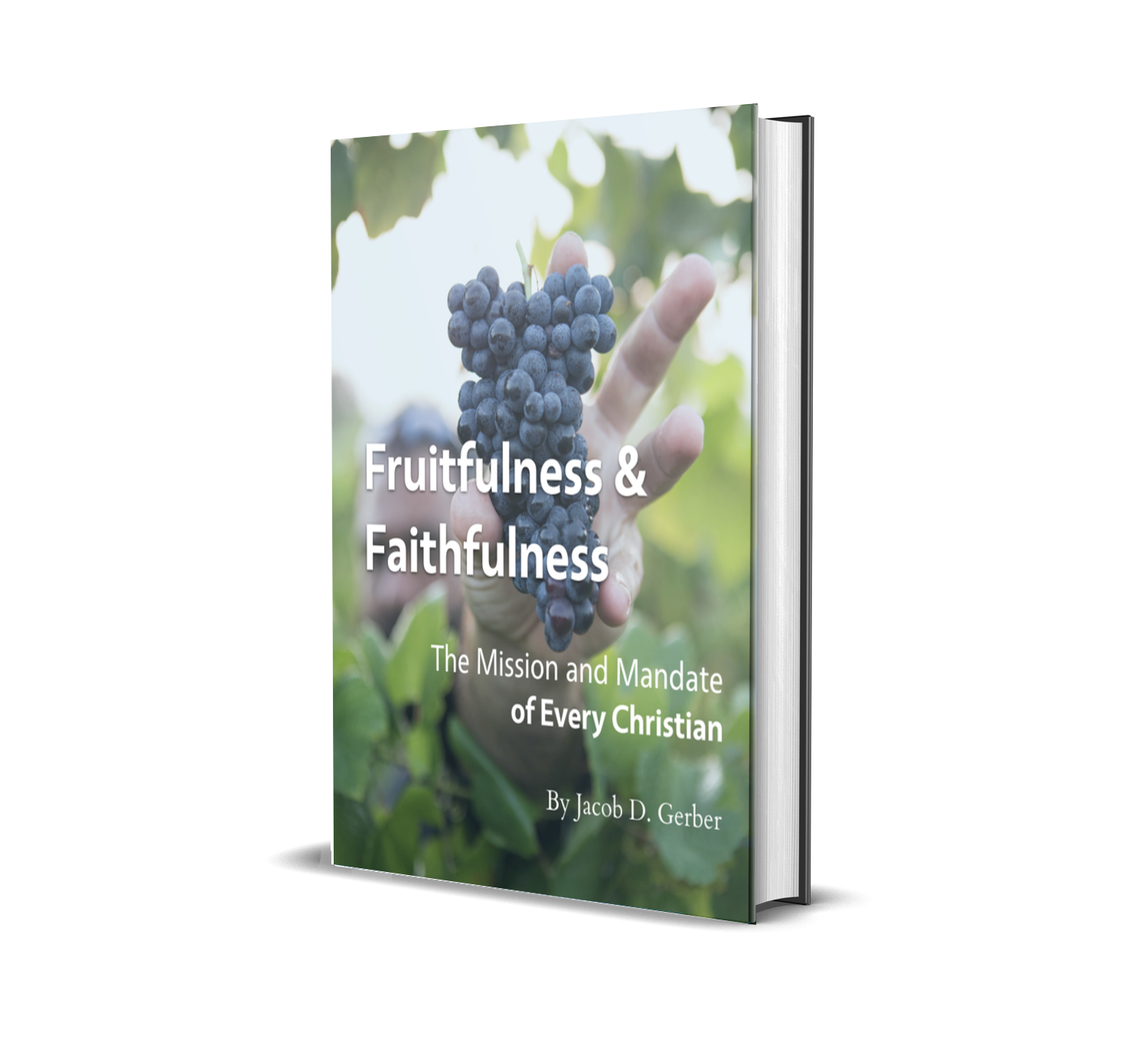Forming and Filling: God’s Productivity in Creation
Productivity is important. God calls us to bear fruit in our families and in our work. But how should we think about our own productivity? Are we simply machines who must learn to spit out more widgets faster, or does God teach us something different about productivity?
In fact, we cannot understand the nature of human productivity unless we first understand God’s productivity. In the creation story of Genesis 1, we find the original pattern of God’s productivity. In creation, God works productively both by forming and filling.
Forming: God’s Work of Organization
The first words of the Bible describe the very first act of God’s creation: “In the beginning, God created the heavens and the earth” (Gen. 1:1). But at this point, creation is not yet good: “The earth was without form and void, and darkness was over the face of the deep. And the Spirit of God was hovering over the face of the waters” (Gen. 1:2).
Pay careful attention to the four problems that Genesis 1:2 identifies. At this point, God’s creation is (1) formless, (2) empty, (3) dark, and (4) watery. Before God will call the heavens and the earth “good” (Gen. 1:4, 10, 12, 18, 21, 25, 31), he must address each of these problems.
To begin, God must organize the chaos of his creation. During this forming phase of creation, God will form boundaries for (that is, “separate”) the darkness and the waters.
Forming the Darkness
First, God forms boundaries for the darkness by creating light (Gen. 1:3). Importantly, God does not use this light to eliminate the darkness, but to organize the darkness: “And God separated the light from the darkness” (Gen. 1:4). The light becomes Day, and the darkness becomes Night (Gen. 1:5).
By the end of the first day, darkness no longer rules over God’s creation.
Forming the Waters
Second, God forms boundaries for the water in two ways: vertically and horizontally.
Vertically, God creates the expanse of the heavens (that is, the sky) to separate the waters above the expanse from the waters below the expanse (Gen. 1:6–8). Horizontally, God creates dry land to separate the waters into organized seas (Gen. 1:9–10).
When a hurricane or a tsunami or a flood strikes, we recognize just how vicious and chaotic water can be. The biblical writers help us to remember to praise God for the boundaries he has assigned to the waters (Job 38:8–11; Ps. 104:6–9; Jer. 5:22).
By the end of the third day, water no longer rules over God’s creation. Furthermore, God has abolished formlessness from his creation.
Filling: God’s Work of Fruitfulness
After giving form to his formless creation, God now begins the work of filling its emptiness.
Filling the Land with Vegetation
First, God fills the dry land with vegetation (Gen. 1:11–13). The emphasis is not only on God’s initial act of creating vegetation, but on the ability of the vegetation to reproduce through its seeds: “Let the earth sprout vegetation, plants yielding seed, and fruit trees bearing fruit in which is their seed, each according to its kind, on the earth” (Gen. 1:11).
Filling the Heavens with Lights
Second, God fills the heavens with “lights” (Gen. 1:14–19). These lights include the “great lights” of the sun and the moon, as well as the stars (Gen. 1:16). These lights not only fill the sky, but they also form creation by separating the day from the night (Gen. 1:14).
Filling the Waters and Skies with Creatures
Third, God fills the waters with living creatures and the expanse with birds (Gen. 1:20–23). As with the vegetation, God desires these sea creatures and sky creatures to reproduce: “Be fruitful and multiply and fill the waters in the seas, and let birds multiply on the earth” (Gen. 1:22).
Filling the Land with Creatures
Fourth, God fills the dry land with livestock, creeping things, and beasts of the earth (Gen. 1:24–25).
Filling the Earth with Humankind
Finally, God creates man (both male and female) in his own likeness, instructing them to reproduce and fill the earth: “Be fruitful and multiply and fill the earth and subdue it, and have dominion over the fish of the sea and over the birds of the heavens and over every living thing that moves on the earth” (Gen. 1:28).
By the end of the sixth day, emptiness no longer rules over God’s creation.
Forming and Filling: God’s Productivity in Creation
At the beginning of creation, God’s world was formless, empty, dark, and watery. By the end of this week of creation, God has formed the formlessness by giving boundaries to darkness and to the waters, and he has filled the world’s emptiness.
Therefore, if we wish to understand the nature of human productivity, we must acknowledge this framework of God’s forming and filling. Here are three major implications we should learn.
First, God cares deeply about his creation. God did not only create the heavens and the earth, but he made the heavens and the earth good by forming and filling the world. We should remind ourselves regularly to worship God for his glory in creation.
Second, God alone forms and organizes the boundaries and limitations of this world. This is important, since our culture despises boundaries and limitations. Sometimes, this is good, as when we must push through the pain of the curse in order to gain and achieve something great (Gen. 3:17–19).
Other times, this is bad, as when we seek to cast away God’s norms, rules, and boundaries. Satan lies to us by telling us that God’s boundaries are oppressive (cf. Gen. 3:1–5), but God’s boundaries are blessings.
Therefore, breaking through sinful or curse-imposed boundaries propels true productivity; however, breaking through God’s boundaries hinders true productivity.
Third, God calls us to fruitful productivity that builds upon his original productivity. As noted above, God does not simply fill the earth. Instead, he fills the earth with self-reproducing vegetation and creatures.
Specifically, God calls us to follow his work of forming and filling with our work. We will pick up that story in the next article: Cultivating and Keeping: Human Productivity in Creation (Gen. 2:15).
FREE eBook: Fruitfulness and Faithfulness: God’s Mission and Mandate of Every Christian
Grow in God’s Plan for Your Fruitfulness and Faithfulness

Invest Your Life Well
Discover God’s breathtaking vision for the fruitfulness of his people.
Learn how to live fruitfully and faithfully in the kingdom of Jesus.
Download the free eBook now.
Get the eBook
Bonus: You’ll also get a discipleship assessment tool to evaluate areas for you to grow in fruitfulness and faithfulness.




